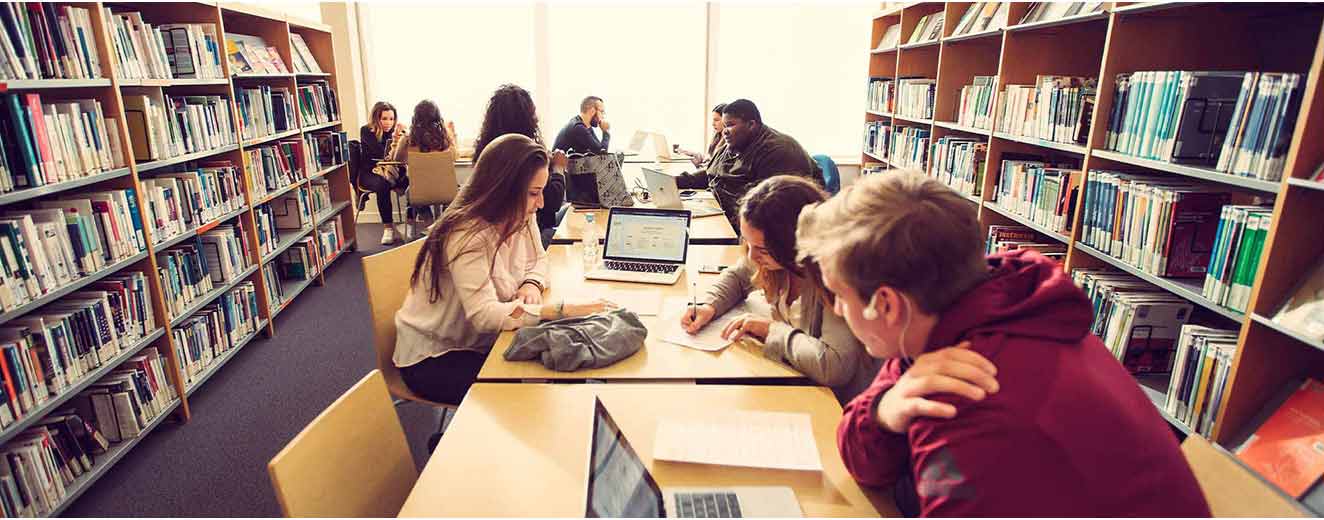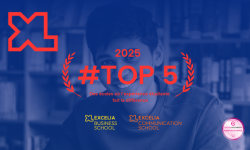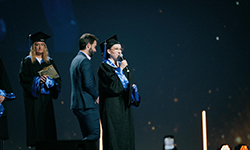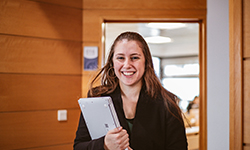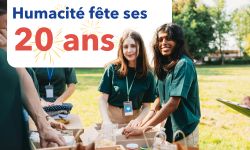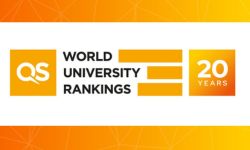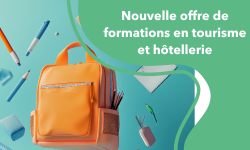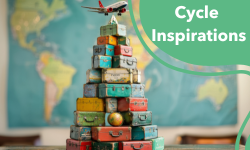To date, Excelia is the only French school to have been awarded UNWTO.TedQual certification for its Bachelor and MSc programmes in the field of tourism. This recognition attests to the quality of Excelia Hotel & Tourism School’s programmes and its commitment to meeting the requirements of the UN’s Global Code of Ethics for Tourism and the Sustainable Development Goals (SDGs) of the 2030 Agenda.
Challenge 1: Sustainable Development and Corporate Social Responsibility
The recent General Assembly of the UN World Tourism Organization, which brought together tourism representatives from 135 countries, was an opportunity to lay the foundations for a new form of tourism post-health crisis. The aim was to restore consumer confidence in their travels, offer more environmentally friendly mobility, establish safety in destinations, and focus on more responsible tourism.
Similarly, inclusiveness is another important area both for tourists themselves and businesses operating in the industry, for example in terms of accessibility for those with disabilities, or even providing specific products for LGBTQ communities. Furthermore, business tourism is also being redesigned in order to be more eco-responsible. For more than twenty years, Excelia has been a pioneer in addressing the challenges of environmental responsibility, having launched a Master qualification in Sustainable Development back in 1998. It has long considered Sustainable Development and Corporate Social Responsibility (CSR) to be essential elements, that should be an integral part of the school’s programmes.
Road testing a novel pedagogical idea!
‘What would cultural, sports and tourism organisations be like if they took ecological and social aspects into account?’ As a response, Charlotte Rotureau, an industry professional lecturer teaching students in Year 3 on the Bachelor in Hospitality (Tourism Management and Hotel Management Tracks) explained: “I wanted the students to experience Slow Tourism first-hand... and more specifically, to take a touring trip, with the aim of linking the mind, by discovering new sectors and meeting socially responsible professionals, with the body as the driving force, and with the soul, by living a collective experience and reconnecting with their emotions”.
Click here to find out more
Challenge 2: Digital Technology
Welcome to the 21st century… a century in which most business relationships and dealings are now digital! Teleworking, Remote Working, Data Science, and Artificial Intelligence are now all part of company strategy, resulting in increasing importance for certain jobs. One such example is Destination Revenue Manager, which involves using reservation data to observe demand behaviour for hotel and holiday resort accommodation with the aim of helping destinations manage their offer more effectively.
New business profiles are emerging... highly qualified individuals capable of running the digital platforms of brands. These experts do not necessarily come from the traditional hotel and restaurant sectors, but count communication and customer relations as important skills.
Digital technology and virtual reality for a comprehensive education
Excelia is redesigning its teaching system, incorporating innovative, immersive, modular, and customisable pedagogical approaches, as part of an ambitious digital transformation plan called XL Vision, for which a budget of €5.6m has been allocated. This plan aims to develop immersive learning through our own metaverses and virtual reality, and through the creation of collaborative environments in the form of physical and digital spaces.
In La Rochelle and Tours, classrooms have been equipped with cameras, screens and audio-conferencing equipment for optimal visual and audio comfort. In this way, as teachers give lessons to students in person, this same lesson can be broadcast live remotely in a virtual classroom to students wherever they are. In addition, pedagogical engineers are working with the Digital Transformation Department and the teachers to jointly develop new teaching materials with the ultimate goal of ‘the right experience for the right course’. This makes for a more interactive course, whether it be remote or face-to-face, synchronous or asynchronous, enabling hybridisation for all audiences and all disciplines.
Challenge 3: Experience Design
Digital technology will also make it possible to transform low value-added professions or jobs, by focussing on an optimised customer experience: customers can access reliable data in real time to plan their journey, visits, etc. Less stress, more well-being for customers... and employees!
In the mind of the tourist...
What drives more and more women to travel on their own? ‘Empowerment’, or ‘women believing in their own abilities’, is a research theme explored by Excelia’s research-active faculty, who have analysed how before, during and after a trip women create a certain identity that is further strengthened and supported by a veritable online community.
The school is also developing an ‘à la carte’ offer enabling students to build their own study path that reflects their aspirations and projects (choice of languages, sector electives, expatriation countries, etc.) but also to discover and explore other areas through modules of their choice (e.g. emotional intelligence, cookery, design, anthropology, etc.). The course Sommellerie, Tasting and Marketing of Wines and Spirits, for example, enables students to combine management studies, wine tourism and oenology, with 120 hours of wine appreciation classes at La Rochelle’s Hotel & Catering High School (Lycée Hôtelier de La Rochelle).
Students at the Tourism School are encouraged to be innovative in terms of products and customer experiences. It is up to them to rethink the tourism of tomorrow, which, even though it will be technology-driven, will have to be more sustainable, more accessible, with a stronger focus on nature and people.

